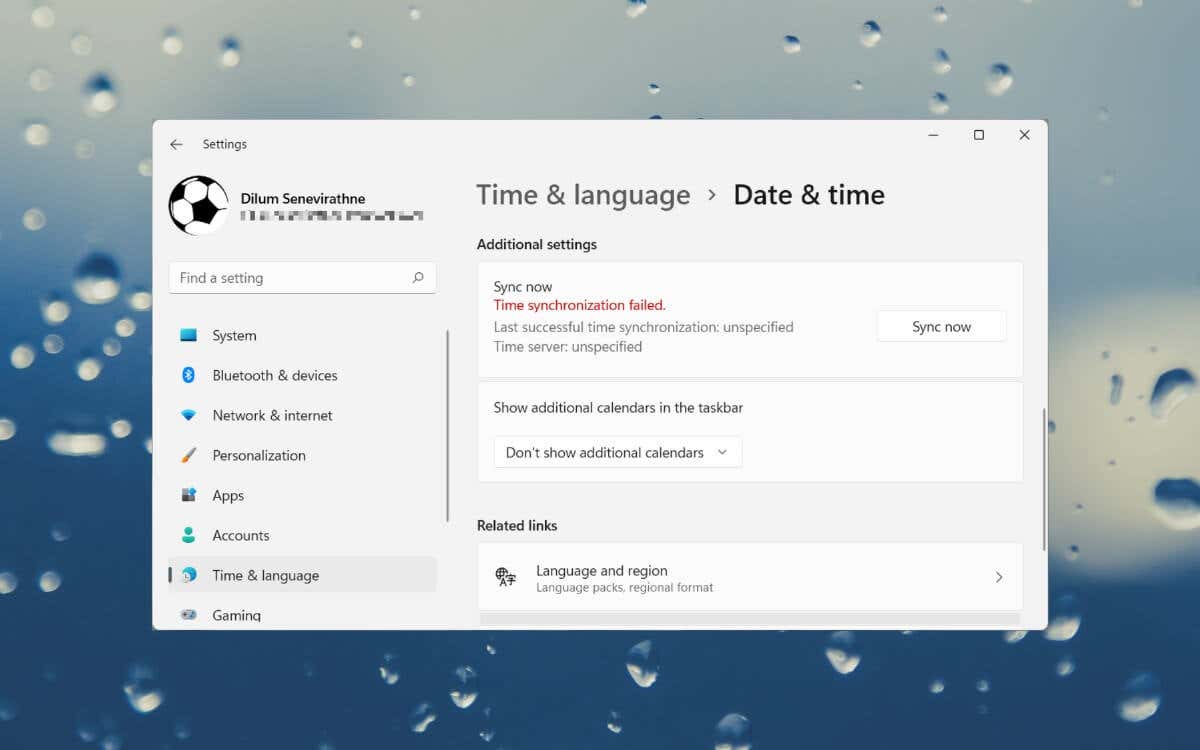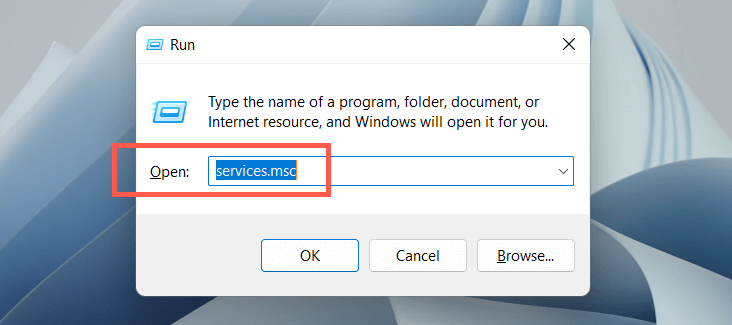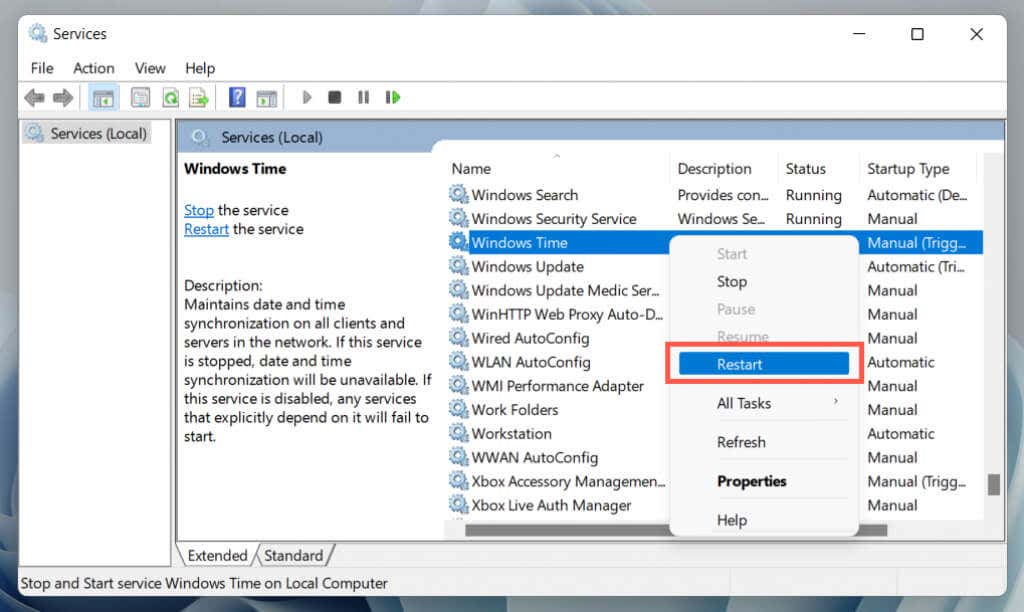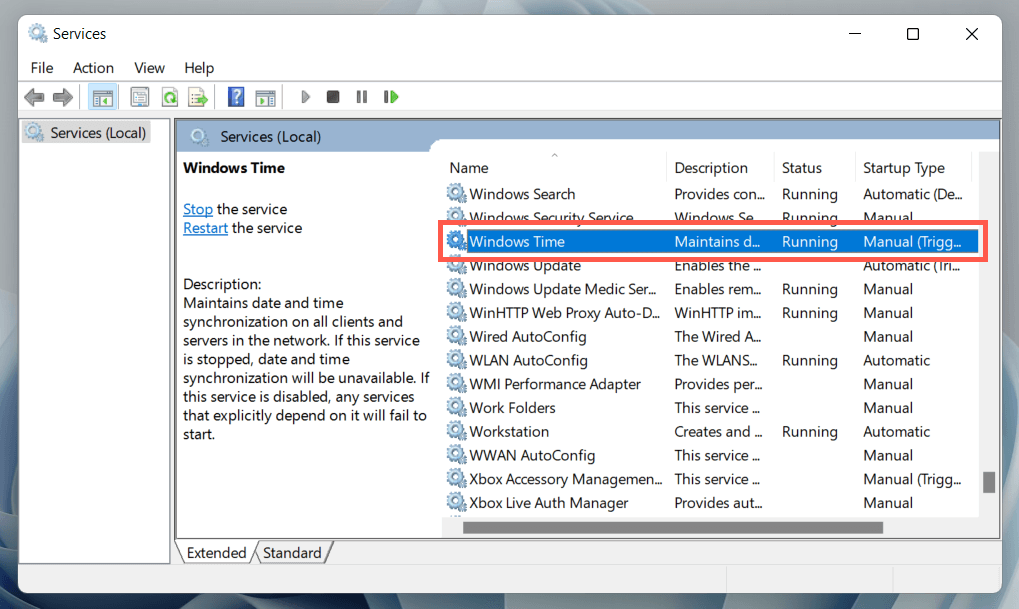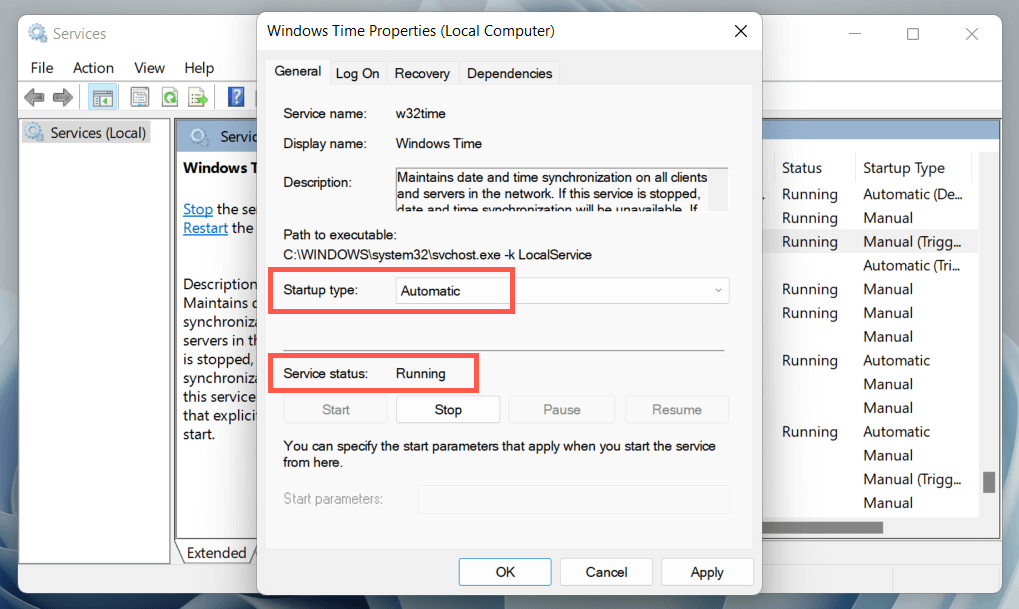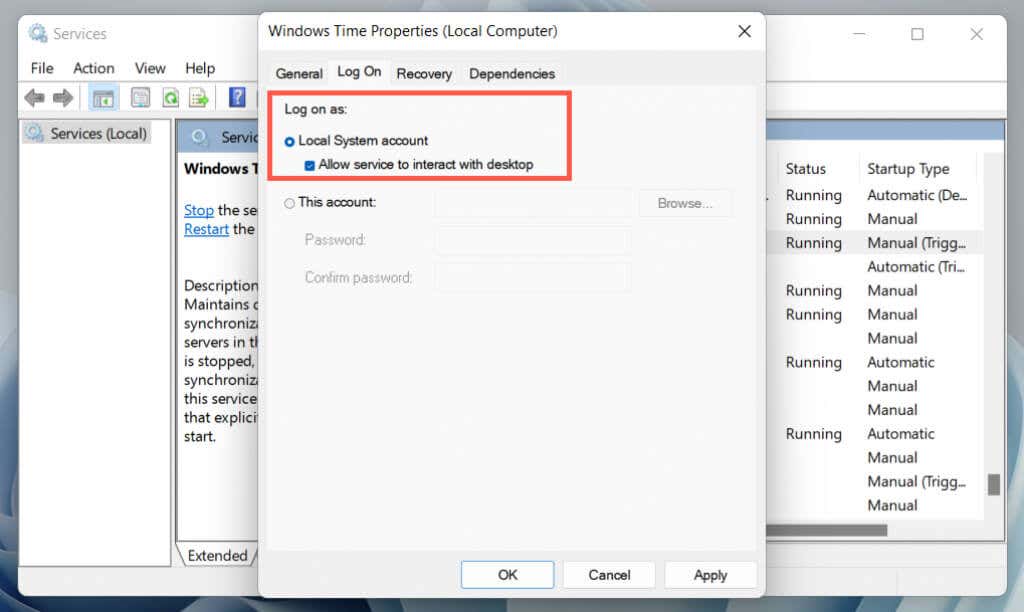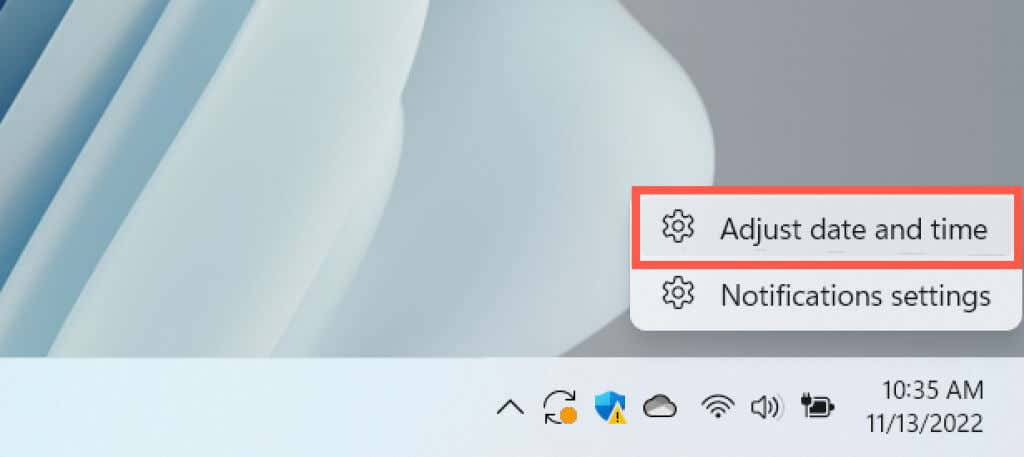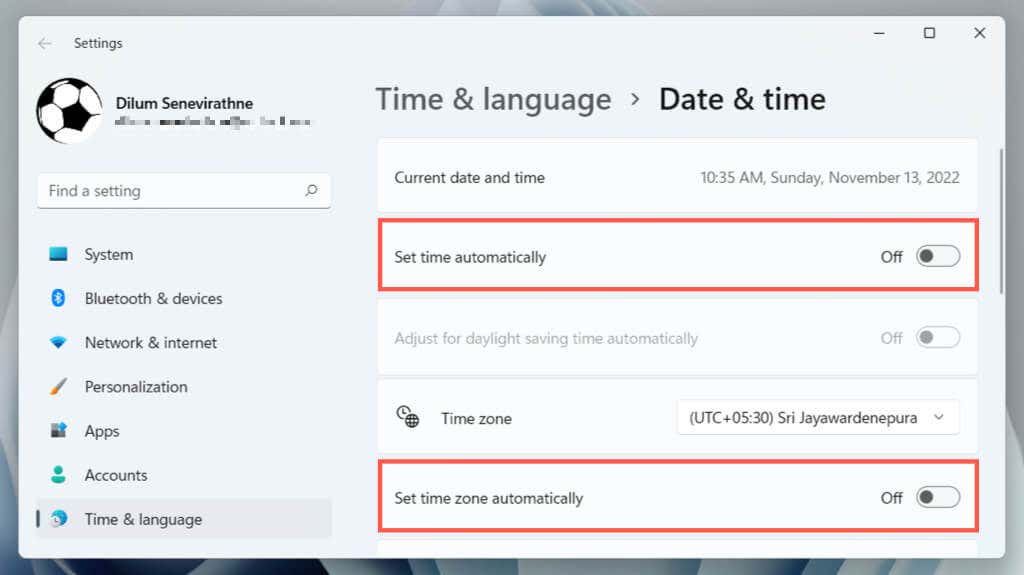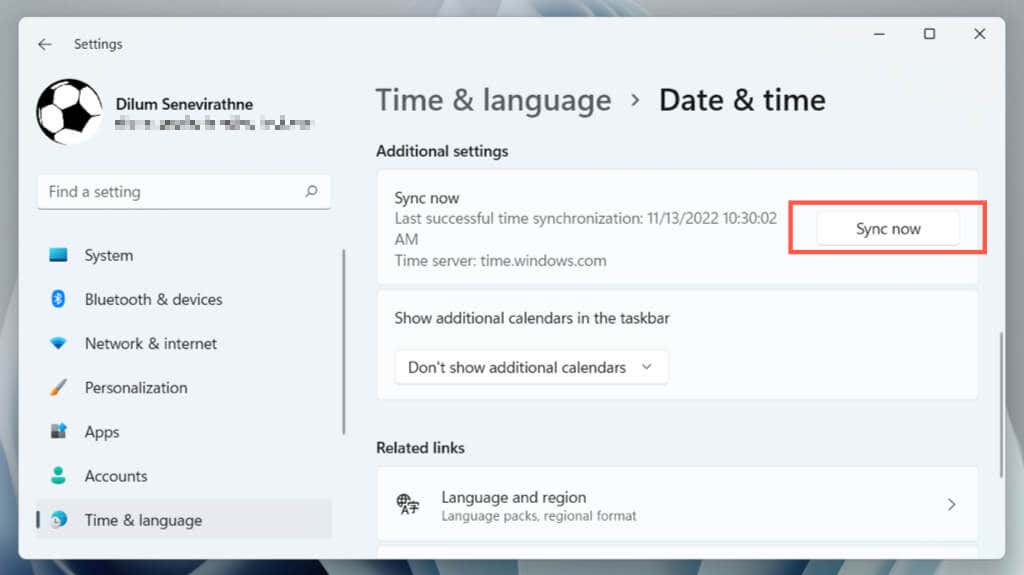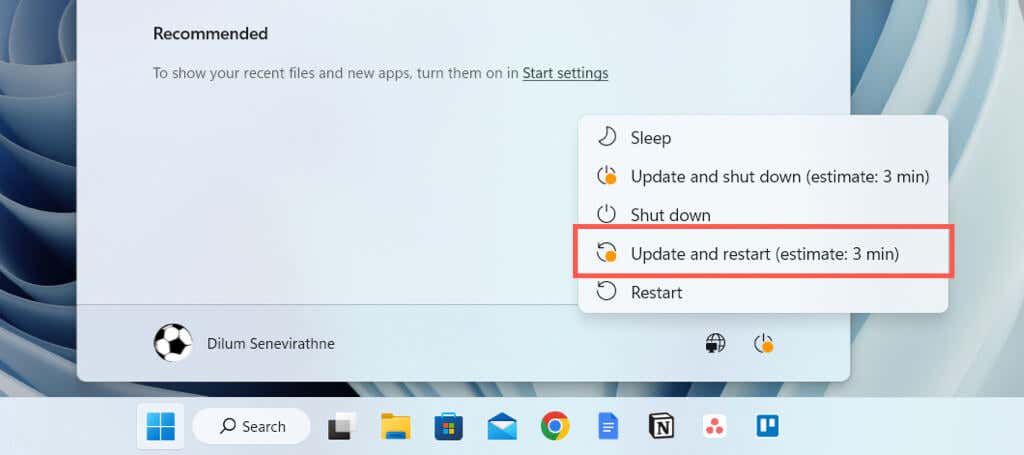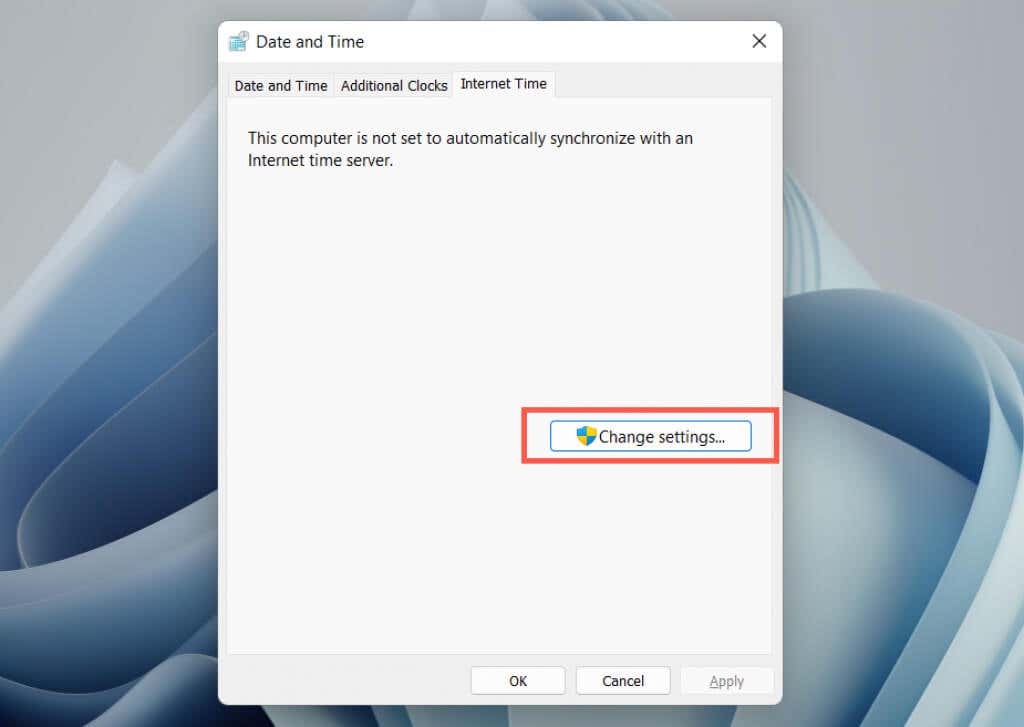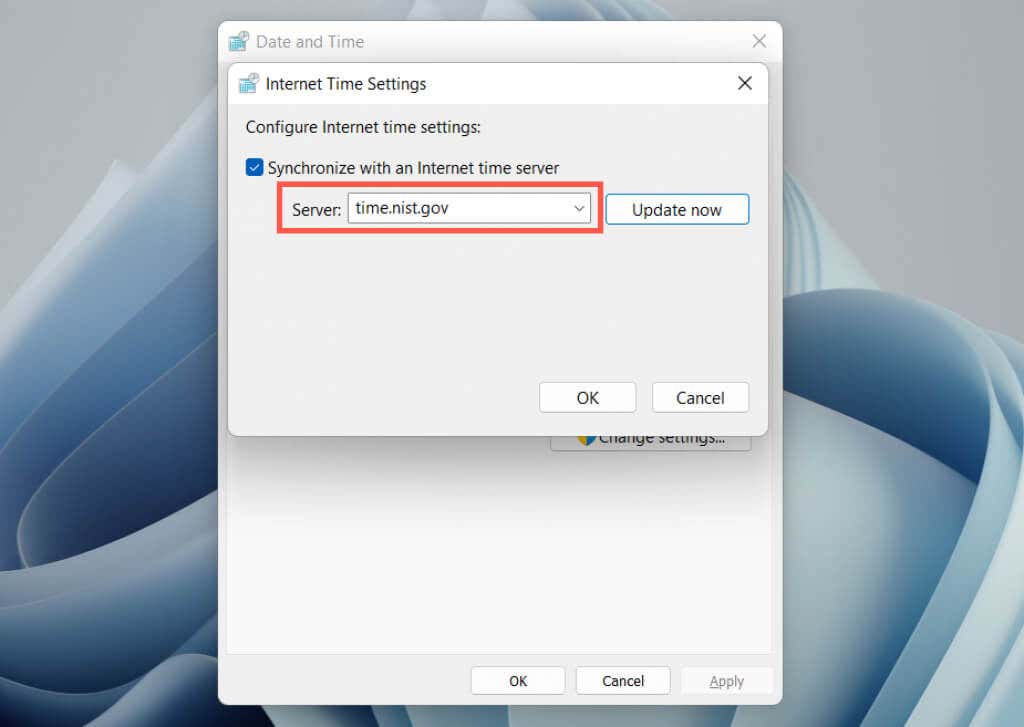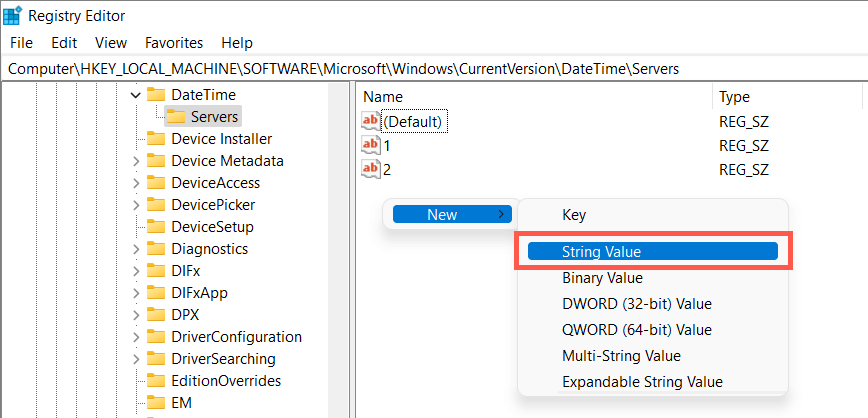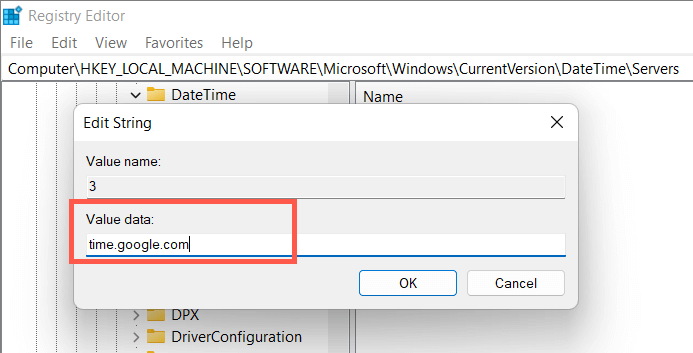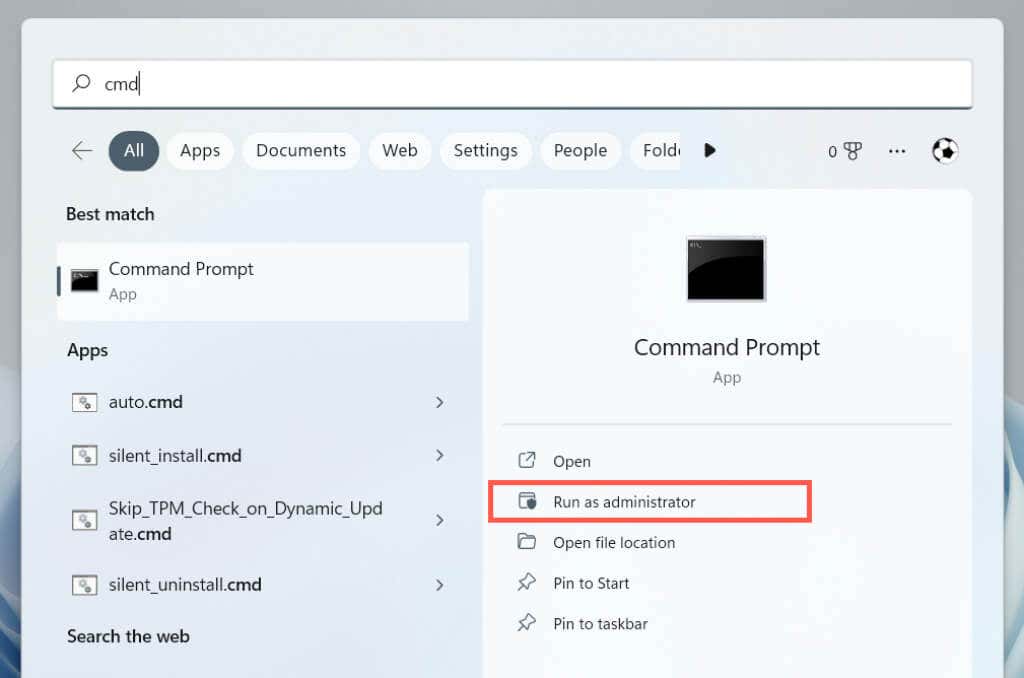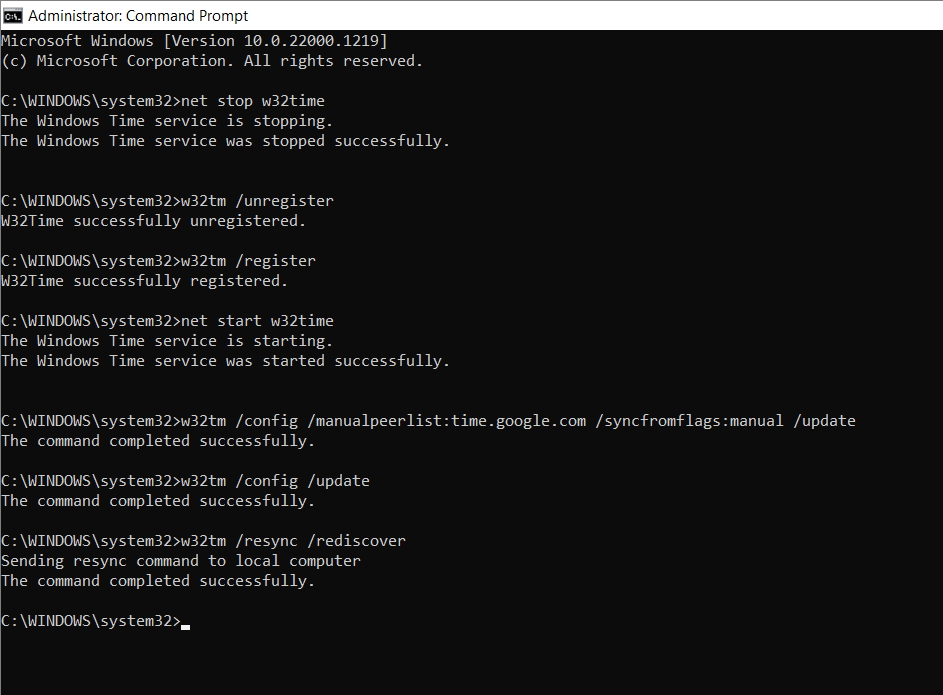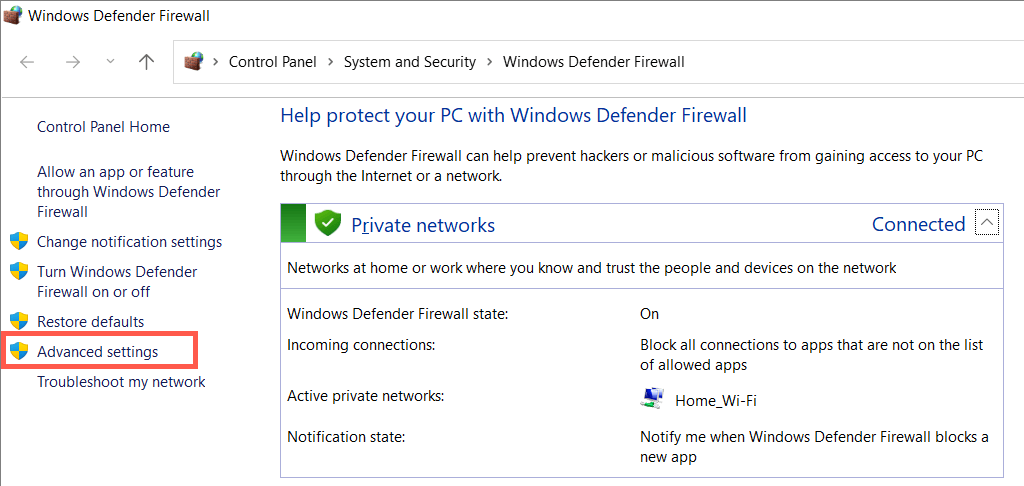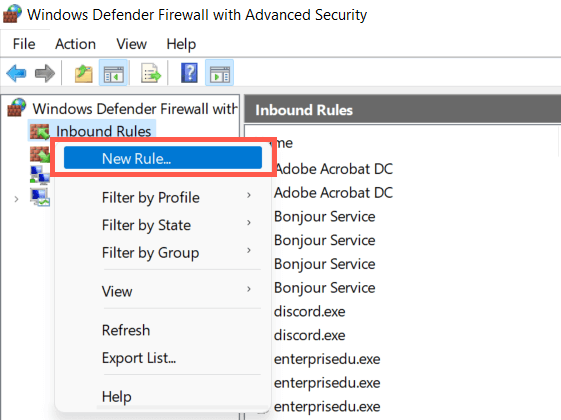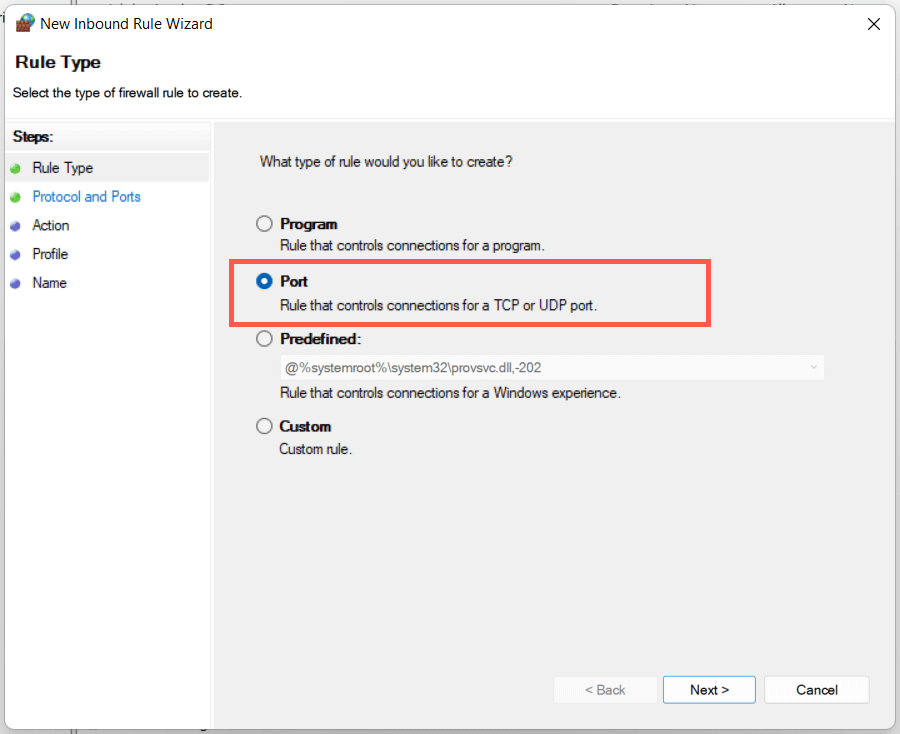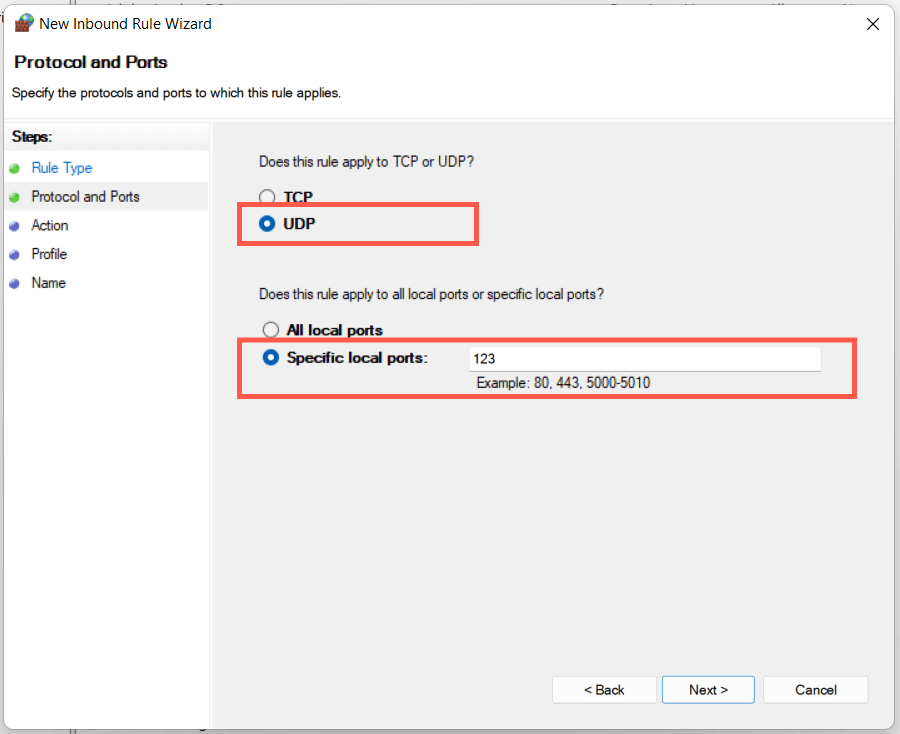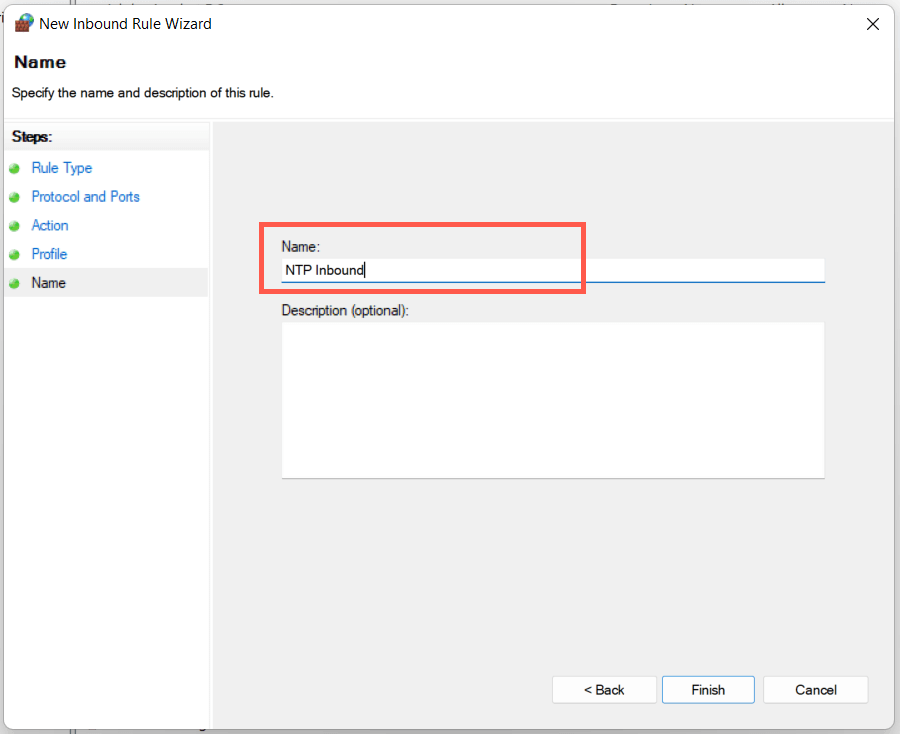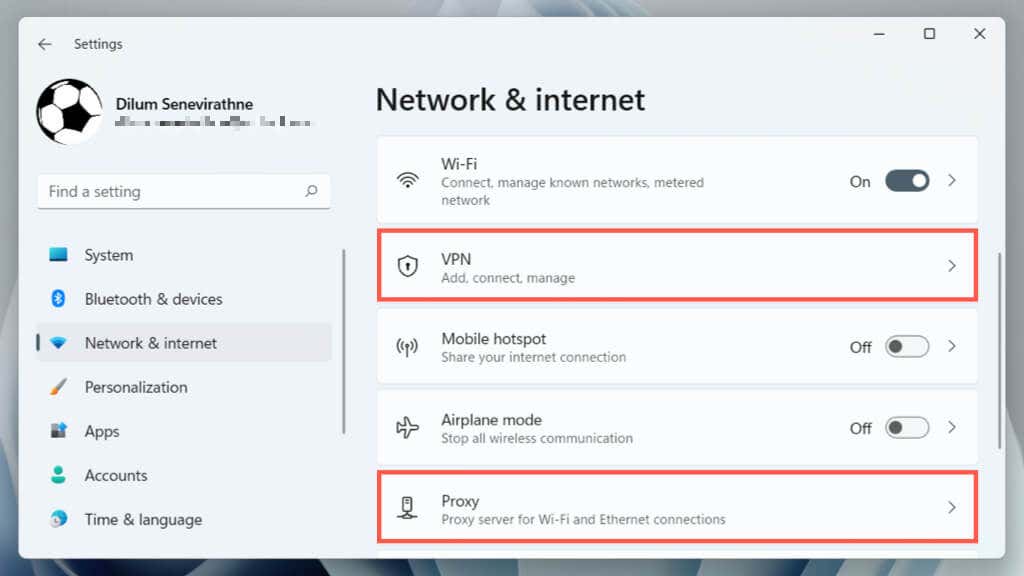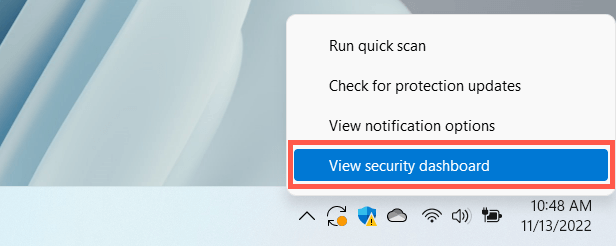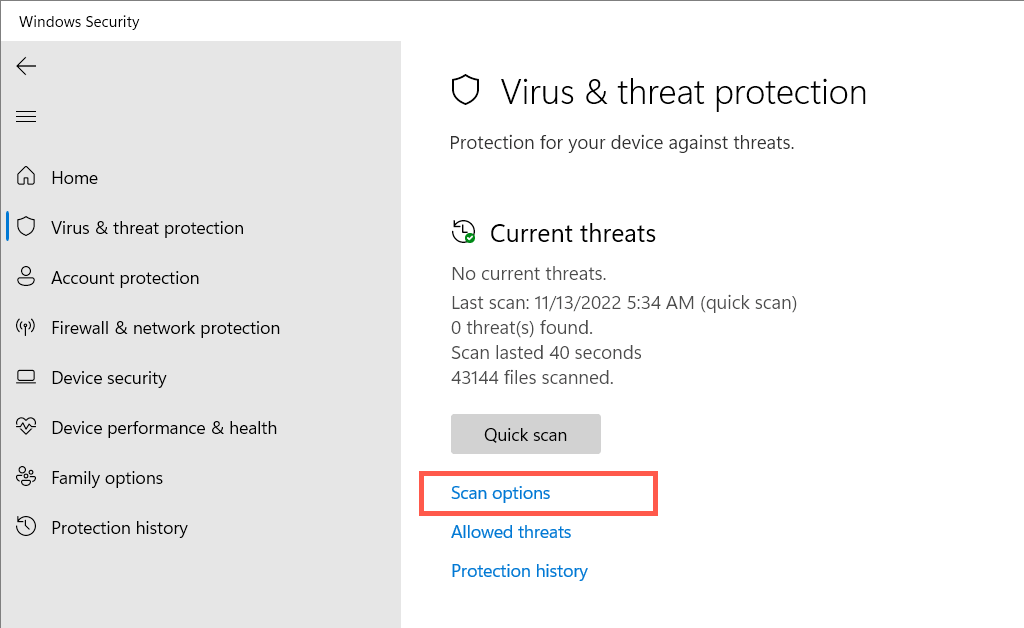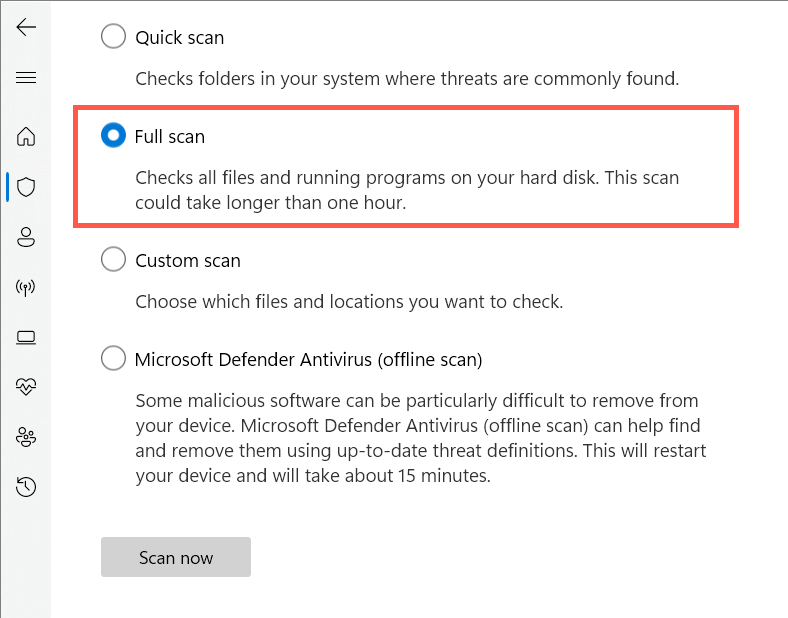It could be a problem with the Windows Time service, an overloaded time server, or an issue with your internet connection. This troubleshooting guide will teach you multiple ways to fix that on a Windows computer.
Restart the Windows Time Service
Windows Time is the background service that manages time synchronization in Windows operating systems. It’s susceptible to unexpected glitches, so restart it via the Services console and check if that helps.
Modify the Windows Time Service Properties
If the “Time synchronization failed” error in Windows persists, make the following adjustments to the Windows Time service properties. To do that:
Toggle Automatic Time-Keeping On/Off
Disabling and re-enabling the automatic time-keeping functionality in Windows fixes time-syncing errors a lot of the time. To do that:
Restart Your Computer
Core Windows functionalities malfunction if you don’t restart your computer often. If the “Time synchronization error” persists, open the Start menu and select Power > Restart. If you see an Update and restart option, choose that instead.
Troubleshoot Your Network Connection
If you see an extended error message reading something like “Time synchronization failed. Please check network connectivity and retry,” it’s likely something to do with your internet.
Here are several things you can try to fix the problem:
Force the router to release and renew the IP address for your PC. Turn the router off and on. Or soft-reset the router. Flush the DNS (Domain Name System) cache in Windows. Connect to a different Wi-Fi network. Reset the network settings in Windows.
Pick a Different Time Server
By default, Windows 10 and 11 syncs with Microsoft’s time server at time.windows.com. Switching to the alternative time.nist.gov server could resolve the “Time synchronization failed” error. You must use the Control Panel‘s Date and Time applet for that.
Add a Different Time Server
It’s possible to add additional time servers to Windows via the Registry Editor. Popular NTP (Network Time Protocol) servers include:
time.google.com time.cloudflare.com ntp.gsu.edu pool.ntp.org isc.org
Back up the Windows system registry, and then: HKEY_LOCAL_MACHINE\SOFTWARE\Microsoft\Windows\CurrentVersion\DateTime\Servers
Sync Time Through the Command Prompt
Next, unregister and re-register the Windows Time service, then sync the time via the Command Prompt console. To do that:
net stop w32time w32tm /unregister w32tm /register net start w32time w32tm /config /manualpeerlist:time.google.com /syncfromflags:manual /update w32tm /config /update w32tm /resync /rediscover
Allow Time Syncing on Firewall
If the problem occurs over the Windows Firewall, here’s how to create inbound and outbound rules to ensure there are no network restrictions on the flow of NTP packets:
Disable VPNs and Proxies
VPNs (virtual private networks) and proxy servers are another reason Windows could struggle to sync the time with a time server. Try disabling them.
Run an SFC Scan
Run the System File Checker (SFC) in Windows to fix time synchronization errors that stem from corrupt system files. To do that:
Scan for Malware On Your Computer
Malicious software often hijacks critical Windows features. If the “Time synchronization failed” error persists or you have trouble performing any of the fixes above, you must run a thorough scan for malware. It’s best to run an additional scan with a third-party malware removal utility. For example, the free version of Malwarebytes is more than adequate at detecting and removing stubborn malware.
Time Synchronization Is a Success
Fixing the “Time synchronization failed” error in Windows is crucial since an incorrect time often leads to complications with Windows Update and other network-reliant functionalities and programs. It also adversely impacts system security.
Just work your way through the fixes above, and you should be able to get rid of it. If the problem persists, consider resetting your Windows 11 or 10 installation to factory defaults.
